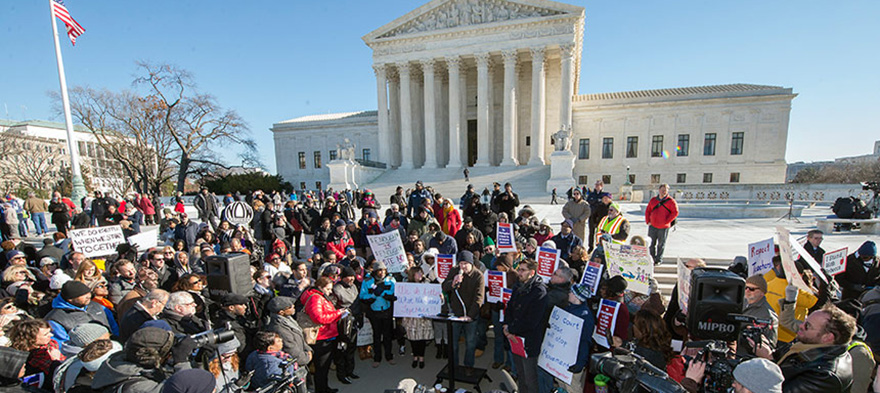
Feb 26, 2018 12:00:00 AM
In states that permit agency fees (there are about 20), a teacher may decline to be part of a union but must still pay those fees. If the Supreme Court rules that those agency fees are unconstitutional, and many teachers do not voluntarily pay, local unions will be deprived of resources needed to negotiate and enforce bargaining agreements.The issue is fairly straightforward. Should teachers have to pay dues to unions they do not necessarily choose to join? And further, should teachers benefit from the collective bargaining agreements unions fight for while not being a contributing member of said union? It is not the merits of the case itself that interest me at the moment. Rather, it was a strange assertion of Paige’s later in the piece that caught my attention. According to Paige, when so-called "education reformers" criticize unions as impediments to improving our nation’s education, what they are really saying is “if union power were minimized and collective bargaining rights weakened or eliminated, school leaders would be able to enact sweeping changes that could disrupt public education’s status quo.” Paige is wrong. As someone who would likely be labeled an "education reformer," I don’t want a weaker union; I want a stronger ally.
Zachary Wright is an assistant professor of practice at Relay Graduate School of Education, serving Philadelphia and Camden, and a communications activist at Education Post. Prior, he was the twelfth-grade world literature and Advanced Placement literature teacher at Mastery Charter School's Shoemaker Campus, where he taught students for eight years—including the school's first eight graduating classes. Wright was a national finalist for the 2018 U.S. Department of Education's School Ambassador Fellowship, and he was named Philadelphia's Outstanding Teacher of the Year in 2013. During his more than 10 years in Philadelphia classrooms, Wright created a relationship between Philadelphia's Mastery Schools and the University of Vermont that led to the granting of near-full-ride college scholarships for underrepresented students. And he participated in the fight for equitable education funding by testifying before Philadelphia's Board of Education and in the Pennsylvania State Capitol rotunda. Wright has been recruited by Facebook and Edutopia to speak on digital education. In the wake of the COVID-19 pandemic, he organized demonstrations to close the digital divide. His writing has been published by The Philadelphia Inquirer, The Philadelphia Citizen, Chalkbeat, Education Leadership, and numerous education blogs. Wright lives in Collingswood, New Jersey, with his wife and two sons. Read more about Wright's work and pick up a copy of his new book, " Dismantling A Broken System; Actions to Close the Equity, Justice, and Opportunity Gaps in American Education"—now available for pre-order!
Few issues in education spark more tension and debate than standardized testing. Are they a tool for equity or a burden on students? A necessary check on school systems or a flawed measure of...
Charter schools are public schools with a purpose. Operating independently from traditional school districts, they're tuition-free, open to all students, and publicly funded—but with more flexibility...
Despite the benefits of a diverse teaching force, prospective teachers of color fall out of our leaky preparation pipeline at every stage: preparation, hiring, induction, and retention. Here’s what...
Ed Post is the flagship website platform of brightbeam, a 501(c3) network of education activists and influencers demanding a better education and a brighter future for every child.
© 2020-2025 brightbeam. All rights reserved.
Leave a Comment